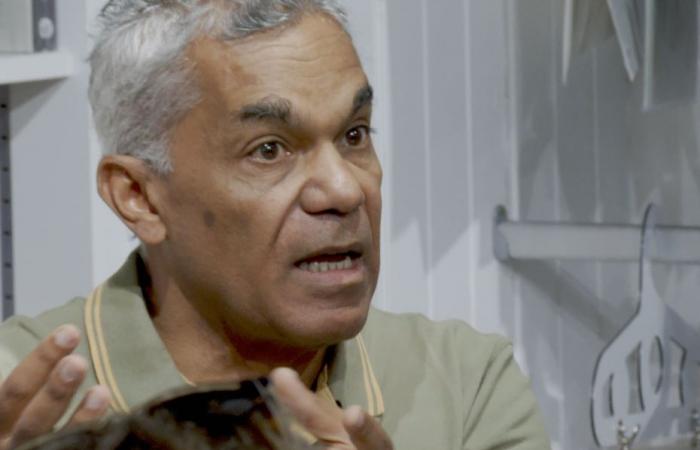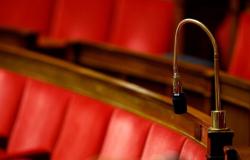
Faced with an unprecedented economic crisis, New Caledonia is waiting for answers. Joël Kasarhérou, business leader and founder of the Construire differently political movement, believes that financial support from the French state will not be enough to recover the territory without political change and fundamental reforms. He explains to us why the injection of funds, without a clear political vision, cannot be a lasting solution.
Joël Kasarhérou, business leader and founder of the Construire differently political movement, emphasizes that financial support from the French state will not be enough to turn around New Caledonia without a clear political agreement. He warns of business paralysis and uncertainty that are holding back investment. For him, only political stability will make it possible to break the deadlock and guarantee a lasting recovery.
NC la 1ère: How would you describe the current crisis in New Caledonia, particularly after the riots of May 13?
Joël Kasarhérou : The situation of public accounts in New Caledonia is today very uncertain. The recent visit of the Minister of Overseas was mainly aimed at reassuring Caledonians and securing a minimum of resources from the national budget in order to keep Caledonia in survival. State intervention is done through loans and not through subsidies and on an ad hoc basis. In the private sector, the situation is extremely difficult: three quarters of companies are running slowly and have often exhausted their cash flow.
We are in a loss situation which risks becoming critical at the end of the year (because of the end of unemployment), with potentially a systemic collapse in 2025. Solvent demand is falling, unemployment is increasing, and businesses can no longer project themselves without a political solution to define a clear investment horizon. Without a clear future plan, it becomes almost pointless to invest.
Without a clear future plan, it becomes almost pointless to invest.
You seem to be saying that the crisis is much deeper than a simple economic situation…
J.K. : Absolutely. The economy cannot restart without political stability, and today it is impossible to plan for the future. Companies need a clear political vision to invest, but there is no consensus on the future of the territory between separatists and loyalists. This uncertainty paralyzes any initiative.
It is also for this reason that the President of the Senate and the President of the National Assembly came to New Caledonia. They came to encourage dialogue between the parties so that a political agreement would stabilize the territory. But as long as tensions remain high, businesses and investors alike are reluctant to get involved and the country falls.
However, the French state could inject funds to rectify the situation. Why doesn't he do it?
J.K. : The state has already injected enormous liquidity during the COVID crisis. At the time, the aid was immediate and reached during the first three months a level almost twice higher than those granted after May 13, 2024. Today, the State keeps the country under perfusion and awaits fundamental reforms and that Caledonian elected officials assume their responsibilities. Without a structured political project and without serious budgetary management, he does not want to continue to fill a “barrel of the Danaids”.
Can you put into perspective what France's support for New Caledonia represents?
J.K. : France has considerable financial resources. The state budget is around 250 billion euros. In this context, funding of 1 or 2 billion for New Caledonia represents a tiny fraction of its overall expenditure. But for the state, the problem is not the amount; it’s the management of that money and its impact. On the scale of our economy, this is enormous, but it is not enough if we do not have a clear political project to ensure effective use of these funds and restore public accounts and reduce the cost structure.
Why does the State favor debt rather than direct subsidies?
J.K. : The State wants to make local decision-makers responsible. Rather than providing subsidies, it encourages us to borrow, hoping that this will encourage our leaders to manage finances more responsibly. The Minister of Overseas Territories, François-Noël Buffet, came to inform us that loans would be possible, but he did not propose direct subsidies. This sends a strong message: the state wants to see budgetary and political efforts before committing further.
What do you think of plans like the PS2R (Strategic Recovery and Recovery Plan)? Are they viable solutions?
J.K. : PS2R is a typical example of promises without follow-through. It is a well-intentioned document, but it lacks a precise timetable, budgetary figures and clear governance and evaluation. In reality, it looks more like a list of intentions to show the State that actions are planned, without there really being a desire for concrete implementation. PS2R seems designed more to cajole the State than to be implemented. Furthermore, the announced five-year plan does not resolve the basic problem: the political crisis which is blocking everything.
What role can the nickel industry play in this crisis?
J.K. : The nickel industry is indeed our main economic resource, but the market is complex. Global production is dominated by the supply/demand couple Indonesia and China, which sets prices, making competing production unprofitable. Our cost of production is far too high to be competitive, which significantly limits our industry's ability to contribute to economic recovery. Even Australia, which is another major producer, is closing operations that have become unprofitable. Nickel is therefore a key resource, but it does not constitute a short-term lifeline because it is the market with geopolitical issues that make nickel profitable and not our nickel strategy and our irreducible costs.
To conclude, what would it take to get out of this impasse?
J.K. : The priority is to reach a stable political agreement. Without this, it is useless to talk about economic recovery, because no one will invest in a territory whose future is uncertain. France can support us, it has the means, but it will not intervene further until local elected officials propose a credible and sustainable plan to manage the economy and reduce dependence on the State. In short, without a clear political vision, money will change nothing, and New Caledonia will continue to survive on aid, without being able to build a stable and prosperous future.





